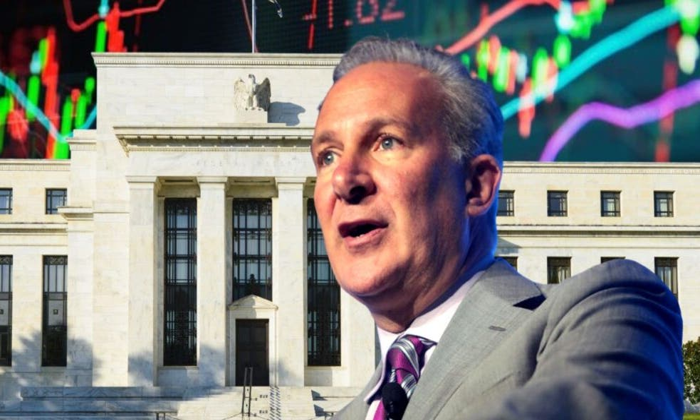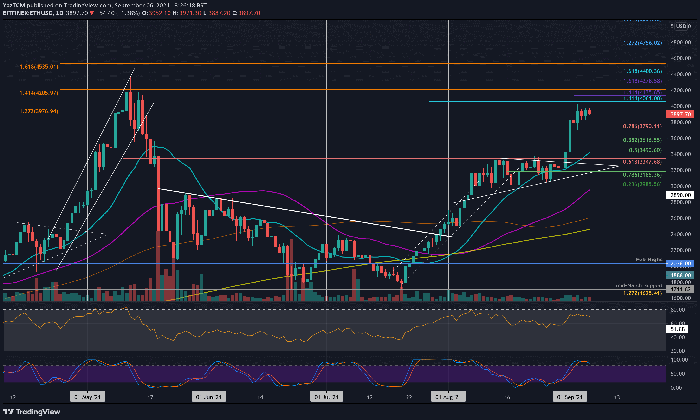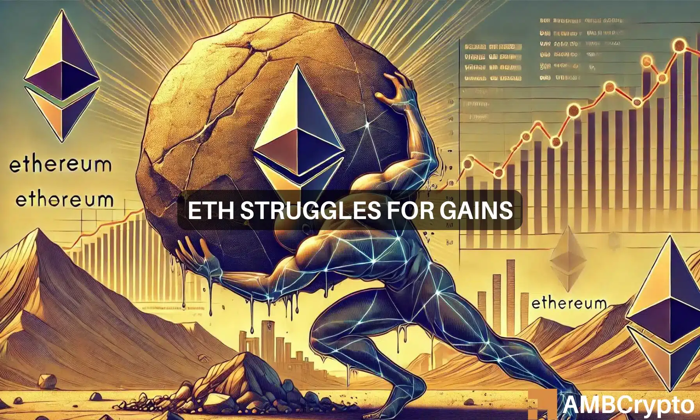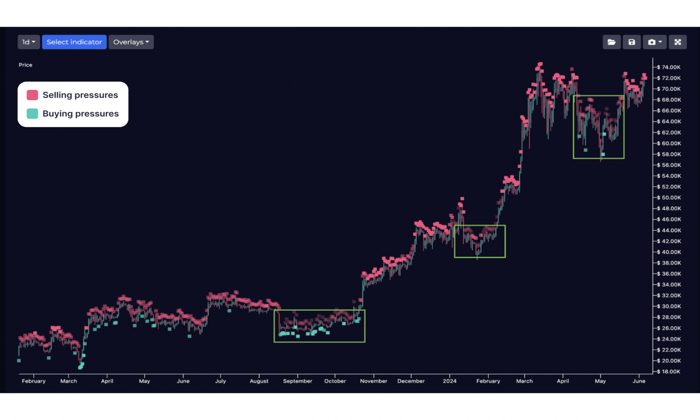In a bold and controversial assertion, Peter Schiff has labeled Bitcoin a “fraud,” framing his arguments around its disappointing price performance compared to gold. During a recent X Spaces podcast, Schiff vehemently expressed that Bitcoin’s promoters misrepresented it as digital gold, only to see its value fluctuate wildly like a risk asset, diverging from gold’s historic stability. This sentiment has led him to dismiss the viability of investing in Bitcoin, even targeting Michael Saylor’s BTC strategy with claims that it will ultimately fail. As Bitcoin vs Gold emerges as a critical debate in the world of investing, Schiff’s comments on Bitcoin seem to resonate within traditional investment circles questioning the cryptocurrency’s role. The ongoing discussion on Bitcoin’s legitimacy continues to heat up, fueled by speculation on price movements and its perceived utility in financial markets.
In the realm of digital currencies, Bitcoin, often touted as a revolutionary asset, is currently facing scrutiny from notable critics like Peter Schiff. Recognized for his firm stance on gold, Schiff argues that Bitcoin’s performance fails to mirror that of more traditional assets, raising questions about its long-term viability as an investment. His recent podcast appearance has reignited interest in the ongoing debate between advocates of cryptocurrency and proponents of precious metals, highlighting key strategies such as Michael Saylor’s BTC accumulation. As discussions surrounding Bitcoin’s utility and its potential to serve as a reliable store of value intensify, the contrasts between investing in Bitcoin and gold become increasingly relevant. Understanding Peter Schiff’s perspective within this dialogue can provide deeper insights into the shifting dynamics of modern investment strategies.
Peter Schiff’s Bitcoin Fraud Allegations
In a recent X Spaces podcast, Peter Schiff lashed out at Bitcoin, labeling it a “fraud” designed to mislead investors into thinking it could function as digital gold. He insisted that the cryptocurrency’s volatility contradicts the stability and reliability that gold provides, which has established itself as a safe-haven asset over centuries. Schiff’s contention is that despite its lofty promises, Bitcoin fails to deliver proven value, aligning with concerns raised by many traditional investors about the cryptocurrency’s legitimacy.
Schiff’s critiques are emblematic of a broader skepticism surrounding the cryptocurrency market, particularly among proponents of traditional assets like gold. He cites data showing that Bitcoin’s recent performance does not parallel gold, despite both being marketed for their limited supply and utility. Schiff warns that those who invest in Bitcoin may find themselves in precarious positions, especially if market sentiment shifts abruptly, asserting that many investors are oblivious to the inherent risks associated with such speculative assets.
Comparing Bitcoin and Gold as Investment Vehicles
When evaluating Bitcoin versus gold, it’s vital to consider their historical performance and investment appeal. While Bitcoin has gained notoriety for its dramatic price increases and ROI over the past decade, gold continues to hold its ground as a time-tested asset. Investors often rely on gold as a hedge against inflation and economic uncertainty, promoting its stability compared to the volatile nature of cryptocurrencies.
Proponents of Bitcoin argue that it represents the future of monetary systems, appealing particularly to those who embrace technological innovations. In contrast, traditionalists like Schiff emphasize that gold has an intrinsic value backed by its long-standing status in global finance. Although Bitcoin has delivered staggering returns, with figures indicating massive percentage gains since its inception, the critical question remains: Is the asset reliable enough to replace gold in a diversified investment portfolio?
Michael Saylor’s BTC Accumulation Strategy
Michael Saylor, CEO of MicroStrategy, has become a prominent figure in the Bitcoin landscape, with his aggressive accumulation strategy drawing both admiration and skepticism. His firm has invested billions in Bitcoin, reflecting a bullish outlook on the cryptocurrency’s long-term potential. Saylor’s strategy emphasizes the belief that Bitcoin serves as a superior store of value over gold, a claim that vexes critics like Schiff. They argue that such massive investments in a volatile asset could lead to catastrophic financial repercussions for firms like MicroStrategy.
Saylor’s approach directly counters the caution advised by Schiff and other traditional investors, framing Bitcoin as a transformative financial instrument. By articulating a vision where digital currencies surpass conventional assets, Saylor captures the attention of both institutional and retail investors. However, concerns persist regarding the sustainability of such strategies, raising questions about whether firms investing heavily in Bitcoin can weather market fluctuations without incurring significant losses.
The Future of Bitcoin: Volatility vs. Stability
Bitcoin has garnered attention for its rollercoaster price movements, often leading to debates about its long-term viability as an investment. As Schiff posits, the lack of stability makes it a perilous choice for investors looking for safe, reliable returns. Critics highlight how Bitcoin often experiences extreme pricing swings within short periods, making it unsuitable for those who may rely on predictable investment outcomes.
On the other hand, the excitement around Bitcoin remains palpable, fueled by adoption trends and institutional interest. Many in the cryptocurrency sphere argue that improving infrastructures, regulation, and acceptance will eventually stabilize Bitcoin, aligning its performance closer to that of traditional assets like gold. These opposing views represent the dynamic tension within the investment landscape, demanding that both Bitcoin advocates and traditionalists rethink their strategies and outlooks.
Impact of Speculation on Bitcoin’s Market Perception
The role of speculation in shaping Bitcoin’s market perception is undeniable. High levels of speculative trading can result in explosive growth, followed by dramatic downturns, interpreting Bitcoin’s value as unpredictable. Schiff’s concerns about Bitcoin often revolve around this aspect, positing that its speculative nature attracts hype over true utility, which may not hold up in a downturn.
Conversely, advocates argue that speculation is an inherent part of any emerging asset class and is vital for liquidity, fostering an expanding market. Proponents suggest that, over time, as Bitcoin becomes integrated into more financial systems, it’s likely to stabilize. The contrasting interpretations of speculation underscore the complex social and economic dynamics surrounding Bitcoin, as investors negotiate their positions amid fluctuating market sentiments.
Understanding Bitcoin’s Role in Modern Finance
The increasing integration of Bitcoin into modern financial systems raises critical questions about its role and future. Advocates point to Bitcoin’s potential to democratize finance, offering an alternative to traditional banking systems. With its decentralized nature, Bitcoin provides opportunities for unbanked populations to access financial services, potentially transforming global economic landscapes.
However, the contrasting views of figures like Peter Schiff remind us that this idealistic vision faces substantial challenges. The volatility and regulatory uncertainties that accompany Bitcoin pose significant risks for investors, especially those accustomed to more stable traditional assets. As Bitcoin continues to evolve within the financial ecosystem, both opportunities and risks will shape its acceptance among mainstream investors.
Investor Sentiment: Bitcoin’s Challenging Landscape
Investor sentiment around Bitcoin is incredibly polarizing, influenced by varying perspectives from established finance to new-age thinkers. Figures like Schiff, with their focus on the stability of assets like gold, represent a cautionary voice in the cryptocurrency discussion. They encourage investors to prioritize capital preservation, especially in light of Bitcoin’s speculative tendencies.
Conversely, Bitcoin supporters, including influential investors and entrepreneurs, view the growing support and acceptance of Bitcoin as a positive sign for future valuation. They argue that the maturation of the digital asset landscape will ultimately lead to broader acceptance, despite the current volatility. This dichotomy of views illustrates the ongoing debate within the investment community regarding the balance between risk and reward in the evolving world of cryptocurrencies.
Navigating the Risks of Bitcoin Investment
Investors keen on Bitcoin must navigate a landscape rife with both substantial potential rewards and considerable risks. Unlike traditional investment vehicles, Bitcoin requires a deeper understanding of market dynamics and volatility. Schiff’s warnings serve as a reminder that new investors may underestimate these risks, driven by the allure of rapid financial gains that Bitcoin can offer.
To mitigate risks, investors must do their due diligence and establish robust risk management strategies. This involves understanding Bitcoin’s market fluctuations and establishing clear entry and exit points. Furthermore, diversifying portfolios to include various asset types, including gold and cryptocurrencies, can help balance risk, ensuring that investments remain aligned with individual financial goals.
Long-Term Bitcoin Viability: A Growing Debate
The long-term viability of Bitcoin remains a contentious topic among investors and analysts alike. Critics like Peter Schiff argue that Bitcoin’s lack of intrinsic value compared to assets like gold raises doubts about its sustainability as a long-term investment. They highlight the significant price drops that can occur following speculative bubbles, emphasizing the potential for huge losses in challenging market conditions.
Proponents assert that Bitcoin’s technological foundation and the growing adoption of cryptocurrencies in financial practices indicate a promising future. They argue that Bitcoin will increasingly embed itself within the fabric of global finance, evolving from a speculative asset into a more stable monetary form. The debate surrounding Bitcoin’s future emphasizes the importance of adapting investment strategies as the financial landscape continues to shift.
Frequently Asked Questions
What are Peter Schiff’s main arguments against Bitcoin as a ‘fraud’?
Peter Schiff argues that Bitcoin is marketed as ‘digital gold,’ but it has not performed like gold, claiming this marketing is a ‘fraud.’ He believes Bitcoin is merely a risky asset without the fundamental business story that supports tech stocks.
How does Peter Schiff compare Bitcoin to gold regarding price performance?
Peter Schiff claims Bitcoin’s price performance does not correlate with gold, suggesting that Bitcoin cannot serve as a store of value or hedge like gold, and he labels its promoters’ claims as misleading.
What does Peter Schiff say about investing in Bitcoin?
Peter Schiff advises against investing in Bitcoin, suggesting that it is a super risk asset that lacks the reliability of traditional assets like gold. He believes Bitcoin will ultimately lead to financial failure, especially in the context of firms like Michael Saylor’s BTC strategy.
Why does Peter Schiff believe Michael Saylor’s BTC strategy will fail?
Schiff posits that Michael Saylor’s aggressive BTC accumulation strategy is misguided and likely to lead to bankruptcy, arguing that Bitcoin lacks the fundamental value and stability required for safe investment, contrasting this with the reliability of gold.
What role does Peter Schiff think Bitcoin plays in the financial market?
Schiff questions Bitcoin’s utility in the financial market, especially compared to traditional banking services and other risk assets, arguing that while Bitcoin may offer some innovation, it does not provide the value or performance that investors expect from established assets like gold.
How does Bitcoin’s recent price performance challenge Peter Schiff’s views?
Despite Schiff’s criticisms, Bitcoin’s recent price increase of 36% over the past year challenges his narrative. This trend shows that Bitcoin has outperformed many risk assets, although Schiff continues to assert that it is driven purely by speculation and not actual value.
| Key Point | Details |
|---|---|
| Peter Schiff’s Criticism | Schiff labels Bitcoin a ‘fraud’ and critiques its resemblance to gold, claiming it trades like a risk asset. |
| Bitcoin Compared to Gold | While Bitcoin has not mimicked gold’s performance recently, its long-term ROI outshines gold’s significantly. |
| Questioning Bitcoin’s Purpose | Schiff questions the utility of Bitcoin, suggesting it lacks the promise of returns seen in traditional tech investments. |
| Bitcoin’s Features | Bitcoin provides essential banking services effectively, ensuring reliability and transparency. |
| Recent Performance | As of mid-April, Bitcoin’s price had increased by 36% over the last twelve months. |
Summary
Peter Schiff Bitcoin Fraud claims suggest a deep skepticism about the cryptocurrency’s value and purpose. Schiff argues that Bitcoin is marketed as digital gold but fails to deliver similar stability and performance. His criticisms center on Bitcoin’s role as merely another risk asset without intrinsic value. However, Bitcoin has proven to be a reliable and invaluable banking service, reflecting growth in an evolving market. Despite Schiff’s views, Bitcoin demonstrates a 36% price increase, hinting at its potential for investors.
In a recent podcast, Peter Schiff took a bold stance, labeling Bitcoin a “fraud” while emphasizing the integral role of gold in investments. Schiff, a prominent investor with a billion-dollar portfolio, criticized Bitcoin’s lack of comparable performance to gold, especially in terms of its price stability and overall market behavior. His comments on Bitcoin highlight a growing debate in the financial community, particularly when juxtaposing Bitcoin price performance with traditional assets like gold. The investor’s skepticism of investing in Bitcoin led him to argue that schemes such as Michael Saylor’s BTC strategy are doomed to fail, asserting that Bitcoin’s volatility makes it a risky gamble rather than a secure asset. As the Bitcoin vs Gold narrative continues to evolve, Schiff’s remarks resonate with many traditional investors questioning the future prospects of digital currencies.
In recent discussions surrounding the cryptocurrency landscape, the controversies surrounding Peter Schiff’s opinions on Bitcoin have ignited fiery debates among investors. Schiff has positioned Bitcoin as an unreliable digital asset, in stark contrast to the historical stability offered by precious metals like gold. This clash has not only highlighted the differences in asset behavior but has also reignited discussions on the merits of Bitcoin investing strategies compared to conventional investment avenues. Meanwhile, voices like Michael Saylor advocate for Bitcoin’s potential, contributing to a complex dynamic in the Bitcoin vs Gold discourse that captures both skeptics and proponents alike. These contrasting perspectives speak volumes about the ongoing tug-of-war between emerging digital currencies and established investment norms.















